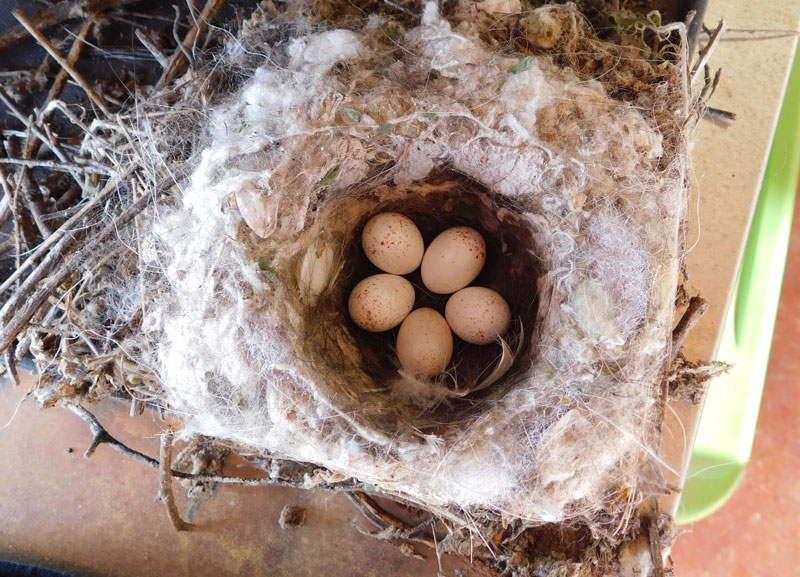Getting ready to fire up the grill recently, I was surprised to find a carefully constructed bird nest occupied by five speckled eggs in the griddle compartment. After studying the nest and taking a few photos, my dinner plans changed course. I closed the lid and headed inside, keeping an eye out for the fine-feathered friend that built this nest.
It wasn’t too long until the culprit returned. I am not a birder and had no idea what type of bird turned my grill into an incubator. My finding spurred me to do a little research on the subject, and I was surprised at what I discovered. For one thing, active bird nests are protected by federal law.
The Migratory Bird Treaty Act makes it illegal to move, destroy, or interfere with active bird nests, which are defined as nests that contain eggs or young birds. The act protects more than 2,000 species of birds, so unless you are certain what type of bird has filled the nest, and it is not on the list, it’s best to leave it alone.
On that note, if a baby bird is found out of its nest, do not to try to care for it yourself as, according to the Texas Parks and Wildlife Department, “it is illegal to possess wildlife without the required state and federal permits.”
If it is a nestling (sparse feathers and unable to fly), its parents and nest are likely nearby. Return the nestling to its nest if possible or build a new one if it has been destroyed. If the bird is a fledgling (feathered and able to hop), there is no reason to get involved other than moving the bird out of harm’s way. Put it out of reach of outdoor pets by temporarily moving pets indoors. The parents are likely nearby and will come back to care for the fledgling.
Highland Lakes Master Naturalist Martelle Luedecke helped me identify the tenants of my grill as house wrens, which are migratory birds and protected under the Migratory Bird Treaty Act. She provided me with information that states it takes about two weeks for eggs to hatch after the last egg is laid then another two or three weeks for the nestlings to leave the nest and become fledglings.
I have enjoyed this journey with the house wrens, and even if they were not protected, they would still have had a safe home in my grill. Nature is pretty cool to observe, so my grill is out of commission for a bit longer — the steaks and burgers will have to wait.

